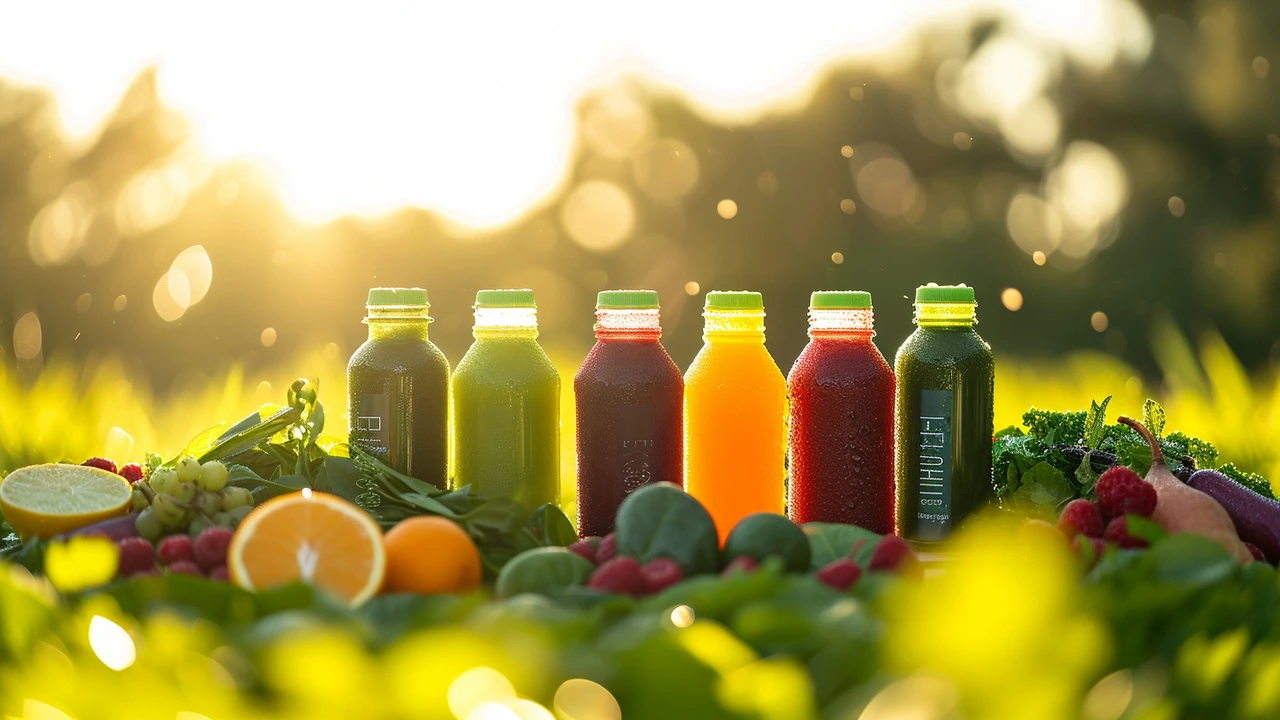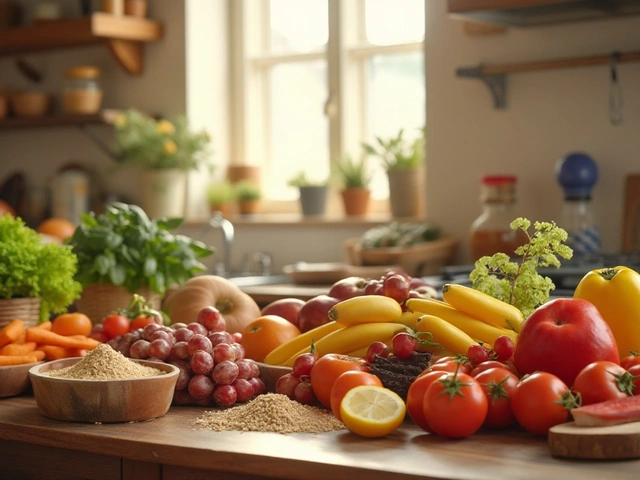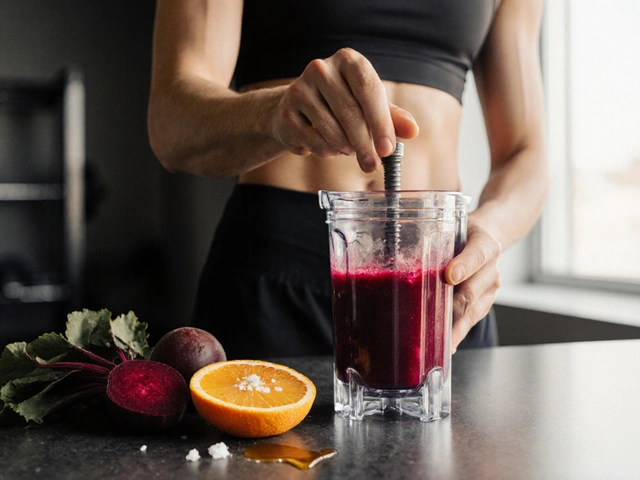Health Benefits of Juice: What It Really Gives Your Body
A glass of fresh juice can deliver a concentrated dose of vitamins and minerals fast — and that matters when you're short on time or appetite. But juice isn't a magic fix. Used right, it boosts nutrients; used carelessly, it adds extra sugar. Here's practical, no-nonsense advice so juice helps you, not hurts you.
Fresh fruit and vegetable juices give quick vitamin C, potassium, folate and antioxidants in easy-to-absorb form. That can help immune function, recovery after workouts, and skin health. Vegetable juices, especially leafy greens and beetroot, also deliver nitrates that support blood flow and energy without a huge sugar load.
Juice is handy when solid food is hard to eat — think illness, after a workout, or for picky kids. It's often easier on the stomach than whole food but still supplies nutrients. For older adults or anyone with low appetite, a small nutrient-dense glass can prevent short-term drops in vitamins and energy.
How to get benefits without the downsides
Keep portions sensible: 4–8 ounces (120–240 ml) is a good daily range for most people. Combine fruit with vegetables to cut sugar and add fiber where you can — for example, apple + carrot + spinach. Avoid replacing whole meals frequently with juice; you’ll miss protein, fiber and lasting fullness.
Choose low-sugar combos: cucumber, celery, kale, spinach, lemon, and a small green apple or pear for sweetness. Add ginger for digestion and lemon for a fresher taste. If you want more protein, blend in silken tofu or a scoop of protein powder to make a smoothie instead of juicing.
Practical tips for making and storing juice
Use a cold-press or centrifugal juicer and drink juice within 24 hours to preserve nutrients. Store in an airtight glass bottle in the fridge, filled to the top to reduce oxidation. If you must prep ahead, add a little lemon juice — vitamin C slows browning and nutrient loss.
Watch blood sugar: if you have diabetes or prediabetes, test how small servings of fruit juice affect your numbers. A mostly vegetable juice is safer. Also, limit store-bought fruit juice — many brands have added sugars or concentrate, which defeats the point.
Think of juice as a targeted boost, not a full diet plan. Use it to add greens, recover after tough training, or get vitamins when meals fall short. With the right combos and portion control, juice can be a simple, effective tool for better daily nutrition.
Three simple recipes to try: 1) Green kick: cucumber, spinach, green apple, lemon. 2) Recovery mix: beetroot, carrot, orange, ginger. 3) Morning glow: carrot, small pineapple piece, turmeric, lemon. Each makes about one 6-ounce serving.
Juicing vs blending: juicing removes most fiber, giving a faster nutrient hit and quicker sugar absorption. Blending keeps fiber, so it’s better for fullness and blood sugar control. If you prefer juicing, eat the leftover pulp in soups, baked goods, or compost it to avoid waste.
Who should be cautious? People with diabetes, those watching calories, and children under five should limit fruit juice. Pregnant people should choose mostly vegetable juices and check salt-free recipes. If you’re on medication that affects potassium or blood pressure, ask your clinician before adding large amounts of certain juices like beet or grapefruit.
Cost and effort matter. Fresh juice costs more than whole produce per serving and needs cleanup. Make small batches, use seasonal produce, and share with family to make it worth your time. A quick juicer plus a cleaning routine can save hassle and keep juice part of your week without stress.
Certain nutrients shine in juice: vitamin C from citrus, beta-carotene from carrots, and folate from leafy greens. These nutrients absorb fast when juiced, so pairing juice with a meal rich in protein and healthy fats helps slow absorption and keeps you full longer.
Finally, use juice for hydration and electrolytes after long workouts — add a pinch of salt to vegetable-heavy juice to help replace sodium lost in sweat. Small, smart tweaks like this make juice work harder for your health.
The Incredible Benefits of Starting Your Day with Healthy Juice: A Wellness Guide
Hey there, you lovelies! I just can't wait to tell you about this amazing habit I’ve adopted that’s totally transformed my mornings – sipping on a fresh, health-packed juice. Imagine giving your body a burst of vitamins and nutrients right at the start of your day. It's like a sunrise in a glass! And you know what? Ever since I made this my new morning ritual, I’ve felt more energized, my skin glows, and I’m just brimming with positivity. So grab a glass, and let’s dive into why bringing healthy juice into your mornings could be the best decision you’ll make for your wellbeing.
View More





